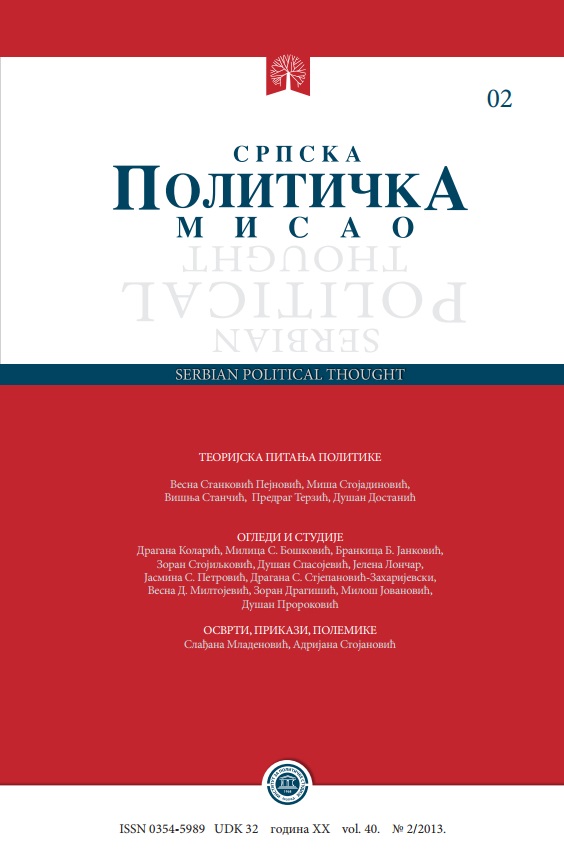Послехладноратовски свет између идеологије и политике силе
Post-Cold War World Between Ideology and Power Politics
Author(s): Miloš JovanovićSubject(s): International Law, Human Rights and Humanitarian Law, Recent History (1900 till today), Government/Political systems, International relations/trade
Published by: Институт за политичке студије
Keywords: post-cold war era; liberalism; human rights; democracy; military interventions; ideology; anti-pluralism; Kosovo and Metohija; „Arab spring”; Libya;
Summary/Abstract: The end of the Cold War engendered new beliefs related to the nature of the international system that had emerged in the 1990s. The dominant vision of the “New World Order” lays in the idea that from the fall of the Berlin Wall international relations have been based on obedience to justice and international law and that consequently, power politics has been abandoned. In that sense, it was claimed that the rupture provoked by the end of the Cold War was of a moral kind. This dominant vision of the post- Cold War era is substantially based on liberal ideas, largely promoted after the fall of the Berlin Wall, notably in the work of Francis Fukuyama. Issues concerning democracy promotion, human rights, right to self- determination, humanitarian interventions, international law and its effectiveness among few others, represented the central themes for researchers in the International Relations field in the last decade of the 20th century. The first major events in the post- Cold War history seemed to corroborate this paradigmatic turn. The NATO military intervention against the Federal Republic of Yugoslavia in 1999 was presented and viewed as the ultimate verification of the new paradigm. The latest events in the Middle East marked a revitalization of the dominant post- Cold War vision that somewhat faded with the 9/11 terrorist attacks and the subsequent wars in Afghanistan and Iraq. The recent crisis in the Middle- East (the “Arab Spring”) is indeed analyzed in terms of the classical liberal problem of democracy promotion. Contrary to that dominant vision of post- Cold War international relations, the paper suggests that the fundamental characteristic of the post- Cold War era resides in the emergence of an anti- pluralistic international society. More importantly, it stresses out the main characteristic of such an anti- pluralistic international society, which is the possibility to provide efficient ideological legitimization of constant state actions that are based on power politics and the law of the strongest. This fundamental feature of anti- pluralism has to be pointed out not only because of its intrinsic weight, but also because it is surprisingly well ignored even by the IR scholars that have noticed the anti- pluralistic turn in international relations after the end of the Cold War.
Journal: Српска политичка мисао
- Issue Year: 2013
- Issue No: 2
- Page Range: 187-204
- Page Count: 18
- Language: Serbian

